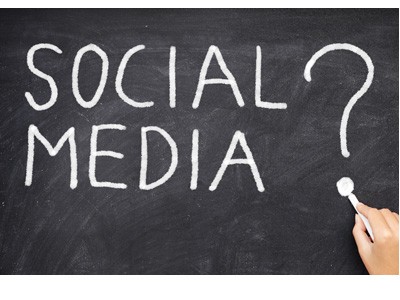In my previous post, I discussed some challenges that social media poses for business journalists who want to remain above reproach professionally while also enjoying the reporting, career-building and engagement tools available in this new digital age.
Because of the variety of roles that journalists can play and the broad continuum of news organizations from straight reporting to pure opinion, it’s hard to write universal ethics rules. But today, I’ll offer some specific suggestions about how to handle ethical challenges or potential conflicts of interest that arise because of the ubiquity and intimacy of social media platforms.
I’ve been mulling over the question of social media ethics for journalists for several years, ever since I noticed that a colleague at a rival news organization was connected to several of our mutual sources on Facebook and LinkedIn. At the time, I mentally frowned on his actions — but now I find myself in the same boat. That brings me to the first thorny question I’ll suggest that you, with the caveat that you should start by reading your employer’s policies regarding social media interactions or journalists’ actions as private individuals.
With whom do you connect?
On Facebook, I “like” 107 pages. Some are publications I write for, some are local or community pages, some are journalism organizations and some are friends’ pages. But then some are pages published by my sources or companies that I cover.
Fortunately, Kelly McBride, senior faculty for ethics at the Poynter Institute, supports my decision to “friend” my sources. “Of course you’re going to be connected to your sources on Facebook and LinkedIn. The way to balance that is to be connected with a wide variety of sources,” McBride said. So if you’re covering controversy over urban sprawl in your metro area, make sure to follow groups on all sides of the issue: developers, environmentalists, community groups and the relevant government representatives.
How much opinion do you share?
One of the core challenges for journalists on social media is that by nature, the medium is more breezy, opinionated and fast paced than mainstream media. This can lead you into missteps because you’re trying to be too funny, irreverent or quick. Take Hiroko Tabuchi, a New York Times business reporter, who vented on Twitter that “Toyota sucks” after a news conference that frustrated her.
“We have to be careful about what we say about companies in the same way we would be careful what we write about them, so we can’t be accused of affecting their reputation or impugning them,” said Jon Talton, economics columnist at The Seattle Times who blogs as RogueColumnist.
Your editorial role should also guide the tone and breadth of your social media comments. It’s generally safer to share opinions about topics that you don’t personally cover, such as a political reporter sounding off on entertainment or sports. If you’re a columnist like Talton, you’re expected to have an opinion in a way that a beat reporter isn’t. Ultimately, the soundness of your work is the best defense against charges of bias, McBride said.
“People don’t expect you not to have personal viewpoints,” she said. “People expect your work to be fair and they want to be able to trust the organization you work for.”
Are you being transparent?
Some journalists have tried to keep their social media presence private through a pseudonym or extremely closed privacy settings. But ultimately, anything recorded digitally can be copied and forwarded beyond your control. It’s almost impossible to stay anonymous on the Internet, if enough curious hackers want to find your identity. It’s better to simply act as if anything you write or share could be viewed by your boss, grandmother and worst critic.
In a similar vein, some journalists have decided to state upfront that retweets don’t constitute endorsements or otherwise to disclose their own assumptions about social media interactions. When in doubt, follow journalism’s time-honored principles: be truthful, independent and accountable. If your social media presence is true to your real self, you’ll remain authentic even as you change beats or employers.
“If a journalist uses the good ethical training that he or she has and applies it to social media, it’s all going to work out,” McBride said.
Are you truly contributing to the conversation?
Sharing is the currency of social media. So as we follow and friend other journalists, bloggers, academics and sources in our area of coverage, we’ll naturally begin to share their tweets or writing. But you don’t want to start sharing un-vetted information or simply return the favor when someone shares some of your content. You must weigh the value of that information to your social media followers. “Demonstrate your expertise and be generous,” McBride said.
That means sharing information from people you agree and disagree with, your journalism rivals and sources alike. The New York Times’ Brian Stelter and NPR’s David Folkenflik are good examples of authoritative Twitter presences that offer interesting content to followers, she said. Talton recommended Marketplace’s Heidi Moore, David M. Wessel at the Wall Street Journal and Felix Salmon of Reuters.
“The reporters who are most successful on Twitter are those who because of their expertise . . . they become in essence a curator of an issue,” Talton said.
You’ll most likely need to return to these four questions as your career and social media itself evolves. Other resources I’d recommend to guide your decisions regarding social media include:
- RTNDA Social Media and Blogging Guidelines
Journalism 2.0: Social Media Ethics presentation by Nathan T. Wright - Washington Post social media guidelines
- Reuters’ handbook
- NPR guidelines
- BBC guidelines
- Washington Post 2011 roundup of guidelines











